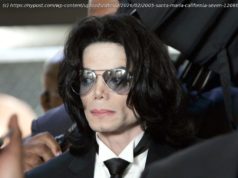The Ryder Cup, golf’s biennial bash between the USA and Europe, is more pantomime than play, more rock concert than recital.
Frivolous? Not one bit. This is deadly serious. Since European players were drafted in to boost Great Britain and Ireland in 1979, it has come to represent nerve-shredding sporting drama and intense emotion.
The resurgent USA is defending champion but hasn’t won in Europe since 1993. Europe has won six of the last eight, including three in a row from 2010. The rivalry is at fever pitch. And that’s when things can get ugly.
I NTERACTIVE: Ryder Cup moments
It all starts with the « phony war. »
For this month’s event at Le Golf National outside Paris, this began the minute American Jim Furyk and Dane Thomas Bjorn were named as captains, shortly after the USA win at Hazeltine in 2016.
Even in the early stages, the captain is under the microscope. Every utterance, every move is dissected by fans and the media. From the appointment of vice-captains, to the selection of four wildcard picks to complement their eight automatic qualifiers, the captains are second-guessed as their particular campaign takes shape.
Debates can rage over wildcards long after the event. Do you pick veterans proven in battle, or in-form but untested rookies? Furyk has picked a mix, Bjorn opted for old heads.
Views on the captain’s role range from crucial strategic commander to speech-making figurehead, but he offers a perfect foil for phony war fun.
The proof will be in Le Pudding.
‘Hallowed turf’
Ryder Cup week will begin in earnest Tuesday in Paris as the teams hit the course for practice. Captains, vice-captains and senior players mull the pairings for Friday and Saturday’s opening four sessions.
Chemistry is key. There have been some good, some bad and some ugly pairings over the years. Spaniards Seve Ballesteros and Jose Maria Olazabal set the standard with 11 wins and two halves from their 15 matches together.
The twinning of Tiger Woods and Phil Mickelson at the height of their cold war in 2004 is always held up as how not to do it.
Like a medieval army pitching camp before battle, the two teams run up their colors in separate sections of the clubhouse. The « team room » becomes hallowed turf. This is where players, caddies, wives, girlfriends and hangers on hang out.
It’s decorated with motivational quotes, pictures and videos of past glories, and equipped with every comfort. For the USA this often revolves around ping pong. Vice-captain Matt Kuchar is said to be king, but rookie Bryson DeChambeau claims to be the young pretender and has purchased a new « paddle. »
Wednesday follows a similar pattern. Practice, speculation, gossip, intrigue.
Stories leak out about famous figures delivering rousing speeches at team gatherings. Think ailing icon Ballesteros on speaker phone from his home in Spain at Celtic Manor in 2010, or former Manchester United manager Sir Alex Ferguson addressing Europe at Gleneagles, or the then governor of Texas George W. Bush invoking the Alamo spirit on the eve of the USA’s famous comeback at Brookline in 1999.
Anticipation builds, chinks in the armor are probed.
Nick Faldo was pilloried in 2008 for a photograph of his supposed list of pairings. He claimed it was his team’s sandwich orders. USA 1-up? At a rain-lashed Celtic Manor in 2010, the USA waterproofs leaked, and a minion was despatched to buy more. Europe 1-up? It’s all good knockabout stuff and with no actual action to report on, the media laps it up.
The phony war reaches its height at Thursday’s opening ceremony when the be-suited players, escorted by their expensively clad partners, take the stage, and the captains deliver a much-anticipated speech in which they announce their first pairings for Friday.
Their words, body language, picks — even the shine on their shoes — are pored over and used as omens.
Europe’s 2002 captain Sam Torrance practiced on the actual lectern set up in his garage months ahead of the event to get it right. Faldo got some of his players’ names wrong at Valhalla in 2008 and put Europe on the back foot.
Puncturing the peace of Friday’s dawn, the first tee grandstands crackle and fizz with as early bird fans warm up their voices.
The stadium atmosphere has become unlike anything else in golf, with chanting, songs, jokes and one-liners bouncing back and forth. The stands at Le Golf National look like skyscrapers.
Mickelson calls it « one of the greatest experiences in the game, » while Jordan Spieth was so moved he commissioned a painting for his house of the first tee scene at Gleneagles.
« It’s like explaining to somebody who is not a father what’s it like to be a father, » said Torrance. « You just can’t explain it. »
Once the first four matches have teed off, the event races away at 100mph. Now it’s all about the color of the scoreboard. Blue means Europe is up, red means the USA is up. Momentum swings this way and that. Roars explode like grenades as putts drop, or don’t.
With only four matches on the course, the crowd is concentrated, the atmosphere intense. For the most part it’s good-natured, but alcohol frees inhibitions and in a small minority, the cat-calls can get ugly.
At Brookline, Colin Montgomerie’s father had to stop following his matches because the abuse was too bad. Rory McIlroy was targeted at Hazeltine in 2016 and had a vulgar heckler booted out.
Inside the ropes, things can get heated, too. Yet for every spat, say, between Paul Azinger and Seve Ballesteros; or US players rankling Europeans with military hats during the bad-tempered « War on the Shore » at Kiawah Island in 1991; or American team members invading the green prematurely when Justin Leonard secured victory in the « Battle of Brookline, » there are myriad moments of levity and sportsmanship.
Like Boo Weekley riding his driver like a horse down the fairway at Valhalla, or Mickelson giving rival Justin Rose a thumbs-up in the heat of battle at Medinah, or Reed and Rory McIlroy fist-bumping and patting each other on the back amid a tumultuous duel at Hazeltine.
There is no second
Saturday follows the same pattern, fourballs followed by foursomes. Some of the 12 will play every session, some will be rested. Some are unhappy at being left out and use this as fuel should things not work out.
The score at the end of Saturday is pivotal for Sunday’s singles strategy. But it’s not always clear cut. Brookline and Medinah, when the USA and Europe, respectively, fought back from 10-6 down to clinch heart-stopping and legendary wins, are the benchmark.






